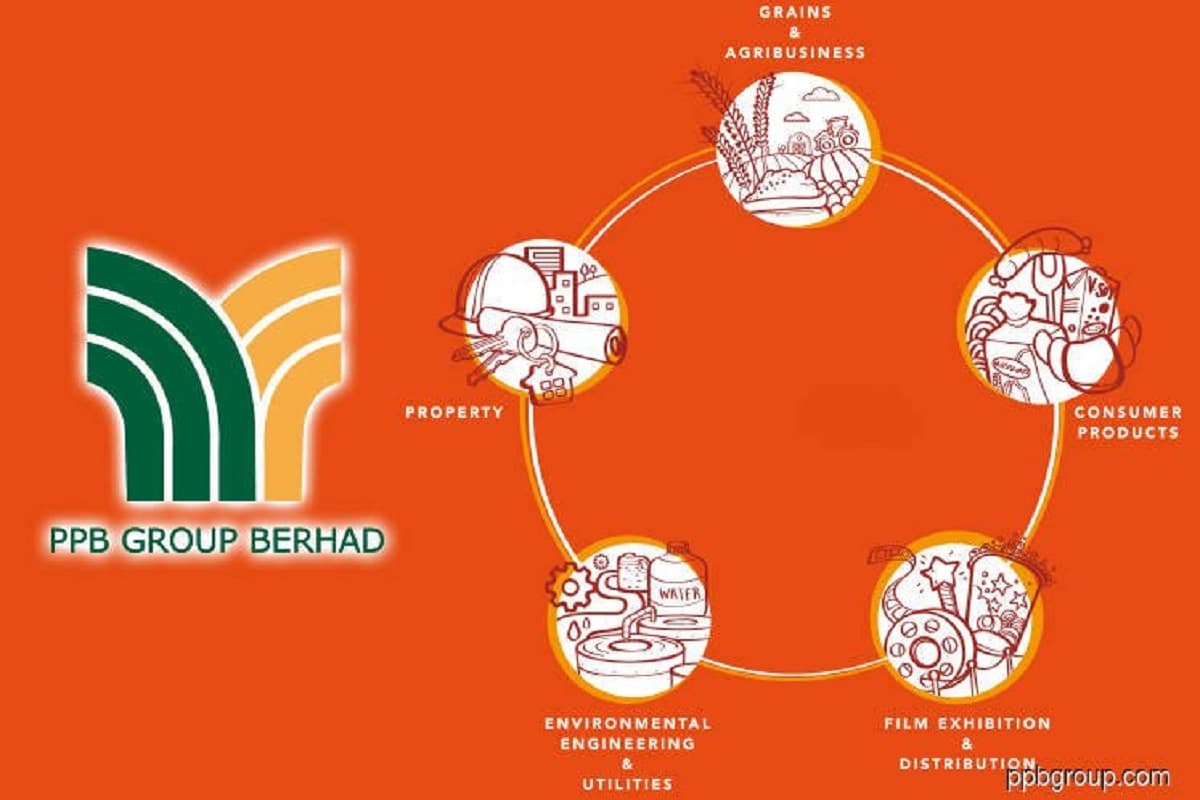
KUALA LUMPUR (March 3): PPB Group Bhd sees challenges on many fronts in 2022, from the spike in commodity prices to the labour shortage situation in Malaysia, which will affect several of the group’s business segments.
During a briefing with the press and analysts on Thursday (March 3), the conglomerate's managing director Lim Soon Huat said the ongoing tension in Ukraine has and will contribute to more uncertainty to the global commodities market.
“There is a surge in demand for goods since the [global] economy reopened and there is a mismatch of supply, causing a supply bottleneck and driving up prices, which has led to higher inflation,” he said.
Lim explained that these disruptions would adversely impact the group’s grains and agribusiness segment given the rise in food commodity prices.
“This will also adversely impact the margin of our food business and consumer goods segment as there is limited room for us to price in and pass on the cost to our consumers,” he added.
Asked if the group is considering a price increase amid the rise in commodity prices — driving up the prices of raw materials — FFM Bhd director chief executive officer (CEO) Jeremy Goon said there was already a 10% price increase by FFM's peers last December. Meanwhile, FFM increased the prices of its key flour product prices on Tuesday.
But even with the price increase, Goon said the wheat millers are unable to cover the rising cost of wheat.
“Ukraine and Russia supply nearly 30% of the world's wheat exports, 19% of the world’s corn and 80% of global supply of sunflower oil. The current situation will exacerbate the super high inflation of food prices.
“There is also the issue of delays in crop planting and many millions of commodities stuck in Ukraine that were going to be shipped out,” he explained, pointing out that the wheat and corn planting seasons are only a couple of weeks away.
Goon further said that farmers with cash currently would not dare to plant in fields in a warzone, faced by the risk of bombings and attacks, adding that some of the farmers are also taking up arms to defend Ukraine.
These factors will put the global grain and oilseed supply at risk, he said, and some portions of these cost increases will eventually need to be passed down to consumers.
However, Lim said the group will be walking a tightrope between consumer sentiment and dealing with the rising cost of doing business.
“Consumers will have no choice but to brace for higher prices. We will try to minimise our price increases, but with the additional costs we are seeing now, it has come to a stage where we need to gradually pass on the costs to the consumer,” he said, emphasising that the group will be considerate and fair in hiking prices.
Labour shortage
Raw material prices aside, several of PPB’s businesses are also affected by the labour shortage in Malaysia. FFM, for example, is facing “extreme difficulties” in procuring manpower, according to Goon.
“Malaysians are just not interested in the jobs we offer, so we need migrant workers to fill in the jobs that the locals shy away from,” he said.
PPB’s construction sector has also been affected, with PPB Properties CEO Low Eng Hooi pointing out that some of its potential tenants had delayed the opening of outlets due to the manpower issue.
He added that many contractors are poaching workers from others by paying more.
“I believe the contractors are absorbing the costs as our contractor for the Megah Rise development has their costs locked. These contractors would much rather spend some costs upfront [for labour] and finish their projects on time, rather than getting penalised for late delivery,” said Low.
However, Goon said that the government is currently easing restrictions, which could begin to mitigate the situation.
The group's film exhibition and distribution business has also been affected by the labour shortage due to the Covid-19 pandemic.
Golden Screen Cinemas (GSC) CEO Koh Mei Lee said many of its employees are part-timers, mostly university students, and Covid-19 is a major concern among their parents.
However, the consumer’s move towards the digital purchasing of tickets — in line with the standard operating procedures (SOPs) set by the government — has helped reduce GSC’s reliance on having more staff.
“This has helped us in terms of staffing. We have also rescheduled the screenings to take into account the shortage of labour. Going forward, we should be able to return to normalcy,” she said.
Despite the headwinds, PPB expects several of its business segments to perform better this year, including its film exhibition and distribution, and environmental engineering and utilities segments.
Lim said the performance of the film exhibition and distribution segment will be supported by the group’s newly acquired assets from MBO, as well as strong line-up of upcoming movies and the relaxation of the Covid-19 SOPs.
Meanwhile, the environmental engineering and utilities segment will continue to focus on replenishing its order book and exploring new opportunities.
Lim added that the spike in CPO prices would be positive for Wilmar International Ltd’s upstream business, which will continue to contribute greatly to the PPB group.